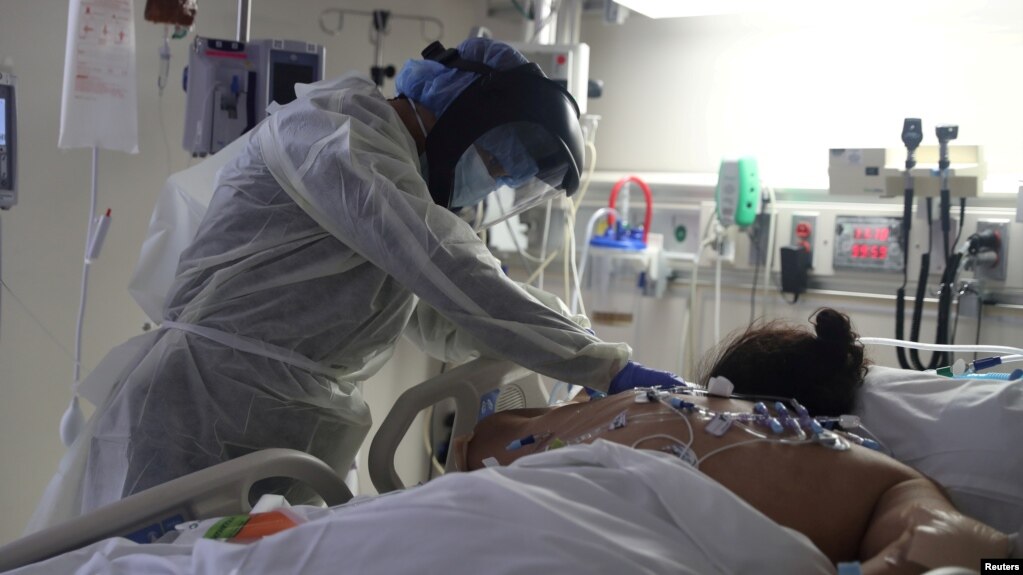
Scientists are only beginning to understand the health problems that are caused by the novel coronavirus. Some of these problems may have effects on people and healthcare systems for years to come, note doctors and infectious disease experts.
The virus that causes the disease COVID-19 attacks many organ systems, in some cases causing terrible damage.
“We thought this was only a respiratory virus,” said Eric Topol, a doctor and expert on hearts. “(It) turns out, it (the virus) goes after the pancreas. It goes after the heart. It goes after the liver, the brain, the kidney, and other organs. We didn’t appreciate that in the beginning,” he said.
Topol is director of the Scripps Research Translational Institute in La Jolla, California.
In addition to respiratory problems, patients with COVID-19 can experience blood clotting disorders and extreme inflammation. The virus can also cause neurological problems such as headaches, lightheadedness, seizures and even a loss of taste or smell.
And recovery can be slow, incomplete and costly.
Dr. Sadiya Khan is a heart expert at Northwestern Medicine in the United States. He described the health problems caused by COVID-19 as somewhat unusual and different.
With influenza, people who have underlying heart conditions are also at higher risk of health problems, Khan said. What is surprising about this virus is the number of complications that take place outside the lungs.
Khan believes there will be huge healthcare costs for people who have survived COVID-19.
Patients who were in a hospital intensive care unit or on a ventilator for weeks will need time to recover and regain their strength.
“It can take up to seven days for every one day that you’re hospitalized to recover that type of strength,” Khan said. “It’s harder the older you are, and you may never get back to the same level of function.”
While much of their attention has been on the patients who experience severe disease, doctors are looking to the needs of patients who were not sick enough to need hospitalization. Some of them are still suffering months after first becoming infected.
Jay Butler is deputy director of infectious diseases at the U.S. Centers for Disease Control and Prevention. He told reporters in a telephone call last month that studies are just beginning to look at the long-term effects of infection.
“We hear anecdotal reports of people who have persistent fatigue, shortness of breath,” Butler said. “How long that will last is hard to say.”
Helen Salisbury is a doctor with the University of Oxford. She wrote recently in The British Medical Journal that an estimated 1 in 10 people experience prolonged symptoms from the coronavirus.
Salisbury said many of her patients have normal chest X-rays and no sign of inflammation, but they are still not back to normal.
“If you previously ran 5k three times a week and now feel breathless after a single flight of stairs, … then the fear that you may never regain your previous health is very real,” she wrote.
Words in This Story
respiratory – adj. of or relating to breathing or the organs of the body that are used in breathing
appreciate – v. to understand the worth or importance of (something or someone)
blood clotting – n. a thick and sticky piece of dried blood that stops blood from flowing through a blood vessel in a person or an animal
inflammation – n. a condition in which a part of your body becomes enlarged and painful
ventilator – n. a machine for helping a person to breathe
function – n. the special purpose or activity for which a thing exists or is used
anecdotal – adj. used to describe a story about an interesting event
persistent – adj. continuing firmly
symptom – n. a physical or mental condition which is considered a sign of disease
stairs – n. a series of steps leading from one floor to another